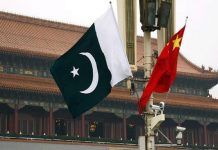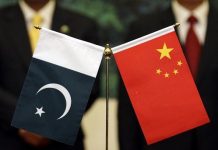BEIJING: The Rio de Janeiro Carnival is one of the world’s best-known events, with colorful floats and dancers in flamboyant costumes attracting hundreds of thousands of revelers to the boisterous Brazilian street festival.
After being canceled last year due to the COVID-19 pandemic, the 10-day annual celebration made a glitzy comeback in April, symbolizing a return to normalcy for Brazil and many other Latin American countries.
According to observers, Chinese vaccines have played a large part in containing the pandemic in Brazil by helping to curb new infections and improving public health.
“The return of the Rio Carnival was very important,” said Henrique de Moura Reis, international relations manager at the China Trade Center Group, which works to promote trade, technological and cultural cooperation between China and Brazil.
“Many people in Brazil view the event as a party, but it goes far beyond that. It is important, as it helps promote a large chain of services and businesses. Many workers in Brazil depend on the Carnival.
“The public watched the parades from bleachers-it was no different to a soccer stadium full of fans, and there was no negative impact from the virus afterward.”
On May 22, Brazil officially ended its two-year health emergency, which was put in place at the onset of the pandemic.
Ending such emergencies has not been easy for Brazil and neighboring nations, many of which are starting to treat the virus as endemic, meaning that it is essentially a permanent feature of life, rather than a pandemic emergency.
Widespread inoculations made it possible to end the emergency in Brazil, with Chinese vaccines, either supplied directly or manufactured in the South American nation, playing a significant role in combating COVID-19.
Announcing the end of the emergency, Brazil’s Minister of Health Marcelo Queiroga said, “As a result of vaccination, Brazil has witnessed a plunge of over 80 percent in the moving average of case numbers and deaths from COVID-19 since the peak reached during the Omicron variant earlier this year.”
The Brazilian government announced it was ending the health emergency immediately after the successful return of the Rio Carnival, lifting people’s spirits and raising hopes for an economic revival after two years of grim news and lockdowns.
The Carnival generates more than 250,000 seasonal jobs and has many other related economic and social benefits.
Benny Spiewak, a lawyer and partner at SPLaw, which specializes in the life sciences sector in Brazil, said: “I believe we have reached this stage mostly because of the vaccines. I understand the value of lockdowns, quarantine and face masks, but ultimately, two, three or four jabs are what got us here.”
CoronaVac, manufactured by Chinese biopharmaceutical company Sinovac Biotech, was the first COVID-19 vaccine to be approved under emergency conditions by Anvisa, the Brazilian healthcare regulatory agency.
–The Daily Mail-China Daily news exchange item






